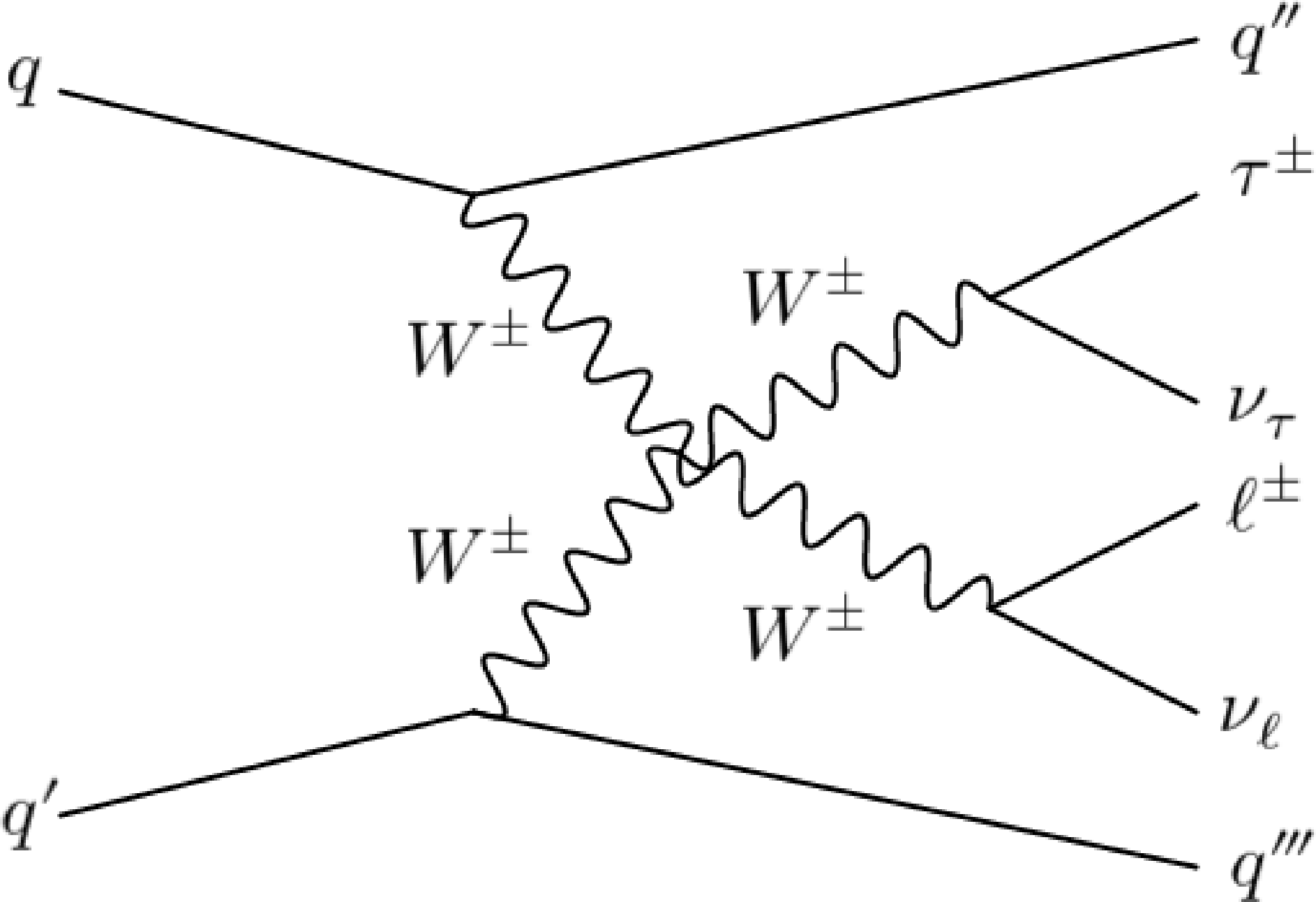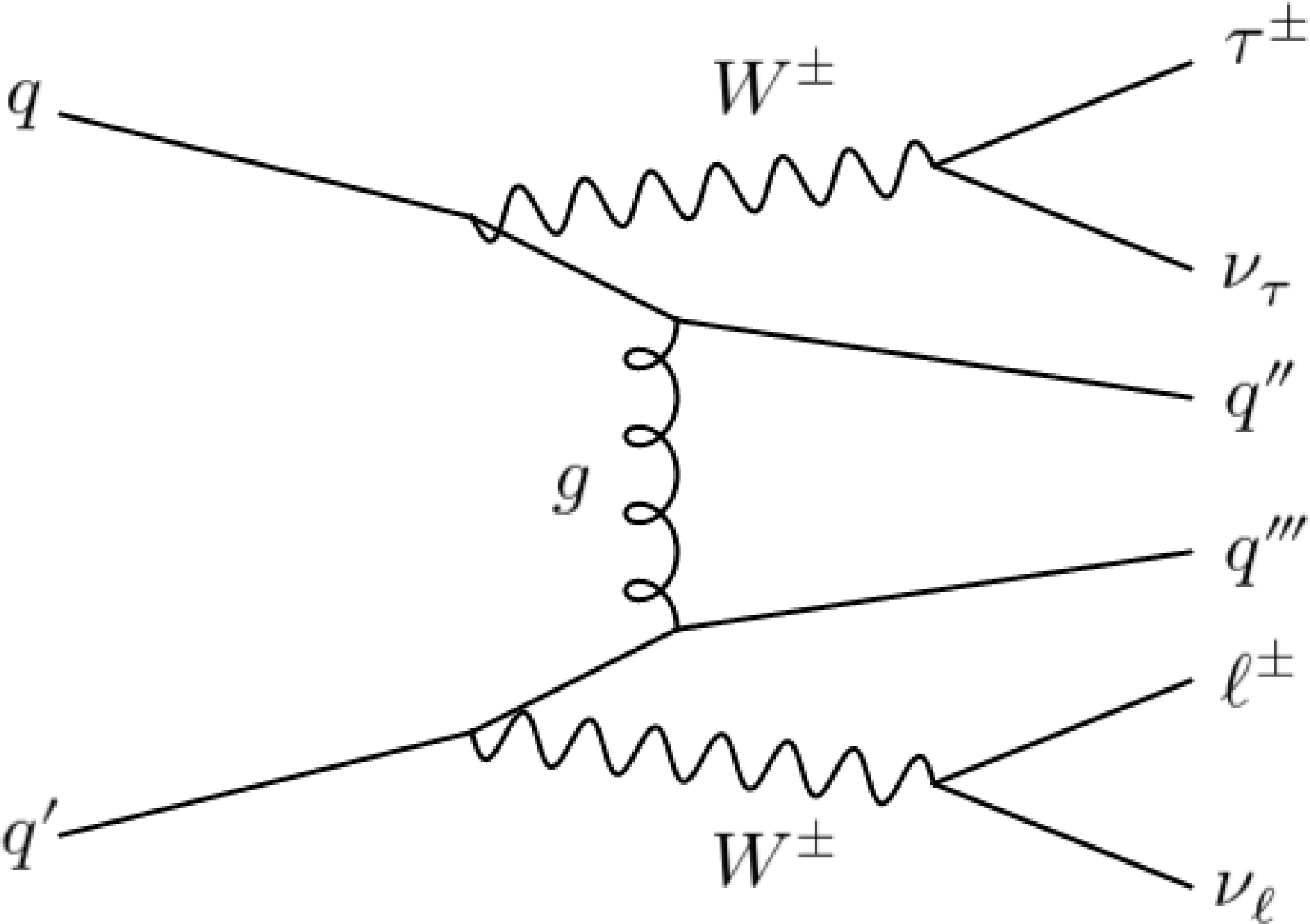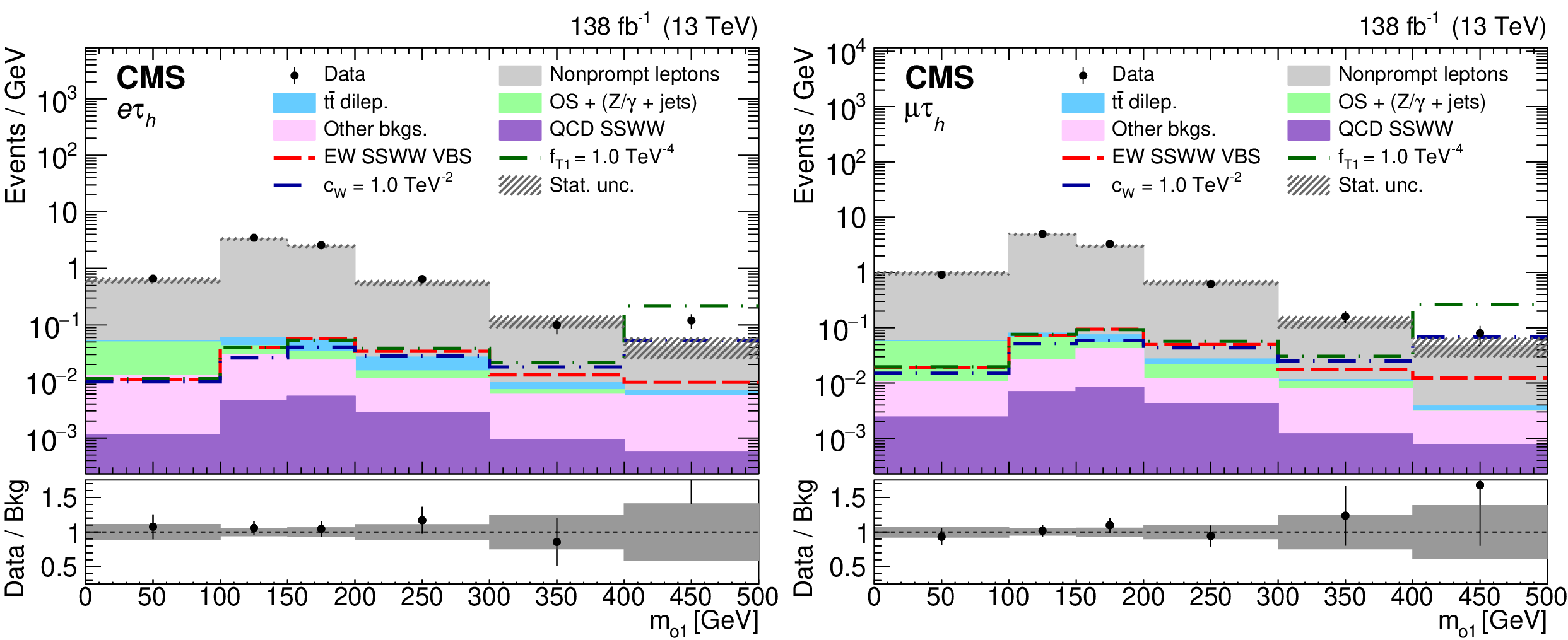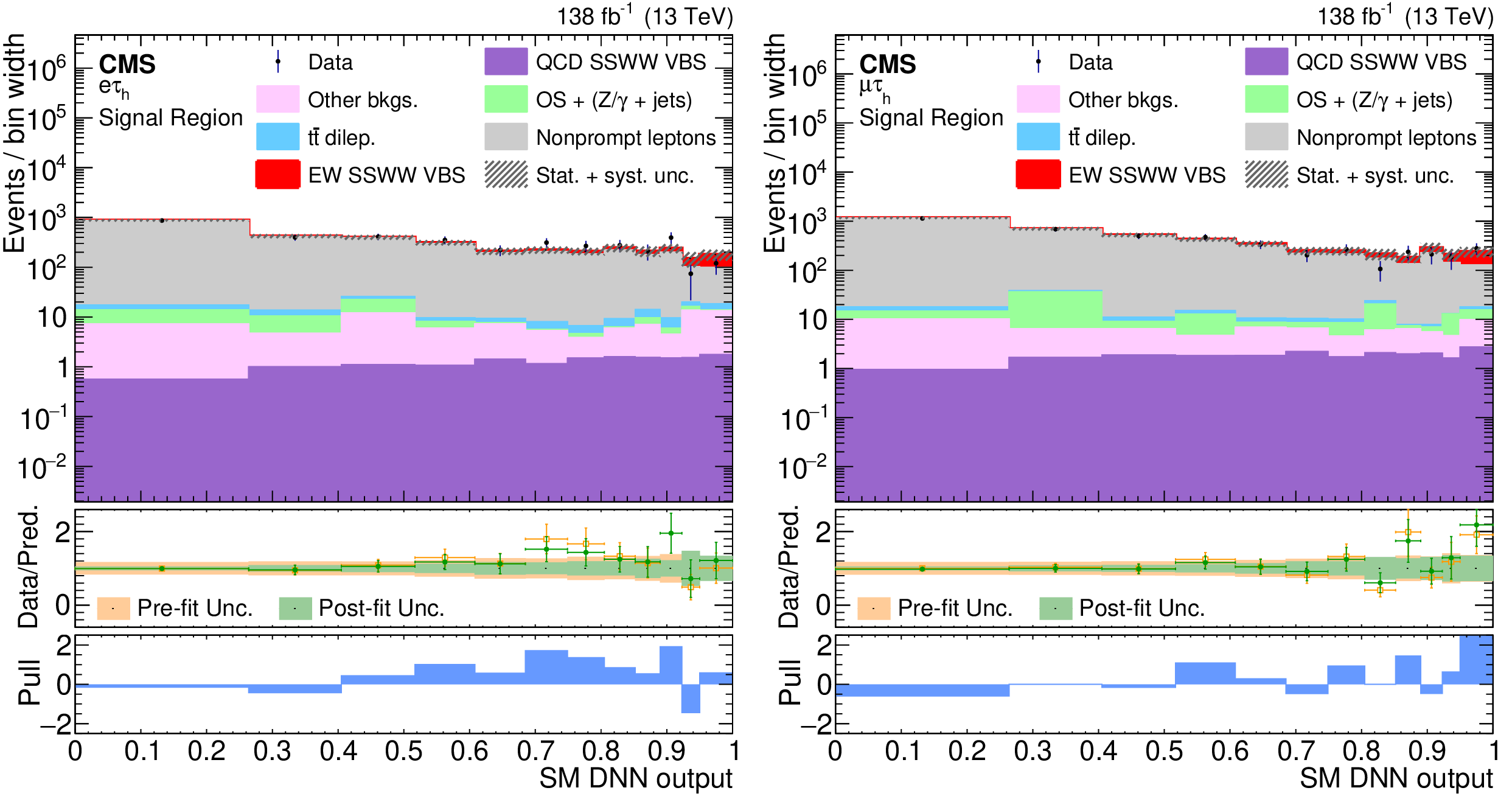Oct 10th, 2024
CMS-SMP-22-008
A first measurement is presented of the cross section for the scattering of same-sign W boson pairs via the detection of a τ lepton. The data from proton-proton collisions at the center-of-mass energy of 13 TeV were collected by the CMS detector at the LHC, and correspond to an integrated luminosity of 138 fb−1. Events were selected that contain two jets with large pseudorapidity and large invariant mass, one τ lepton, one light lepton (e or μ), and significant missing transverse momentum. The measured cross section for electroweak same-sign WW scattering is 1.44+0.63−0.56 times the standard model prediction. In addition, a search is presented for the indirect effects of processes beyond the standard model via the effective field theory framework, in terms of dimension-6 and dimension-8 operators.
CMS-SMP-22-008



CMS-SMP-22-008



C. Bierlich et al.
We introduce a novel method for extracting a fragmentation model directly from experimental data without requiring an explicit parametric form, called Histories and Observables for Monte-Carlo Event Reweighting (HOMER), consisting of three steps: the training of a classifier between simulation and data, the inference of single fragmentation weights, and the calculation of the weight for the full hadronization chain. We illustrate the use of HOMER on a simplified hadronization problem, a qq¯ string fragmenting into pions, and extract a modified Lund string fragmentation function f(z). We then demonstrate the use of HOMER on three types of experimental data: (i) binned distributions of high level observables, (ii) unbinned event-by-event distributions of these observables, and (iii) full particle cloud information. After demonstrating that f(z) can be extracted from data (the inverse of hadronization), we also show that, at least in this limited setup, the fidelity of the extracted f(z) suffers only limited loss when moving from (i) to (ii) to (iii). Public code is available at https://gitlab.com/uchep/mlhad .
Wahid Bhimji et al.
The FAIR Universe -- HiggsML Uncertainty Challenge focuses on measuring the physics properties of elementary particles with imperfect simulators due to differences in modelling systematic errors. Additionally, the challenge is leveraging a large-compute-scale AI platform for sharing datasets, training models, and hosting machine learning competitions. Our challenge brings together the physics and machine learning communities to advance our understanding and methodologies in handling systematic (epistemic) uncertainties within AI techniques.
